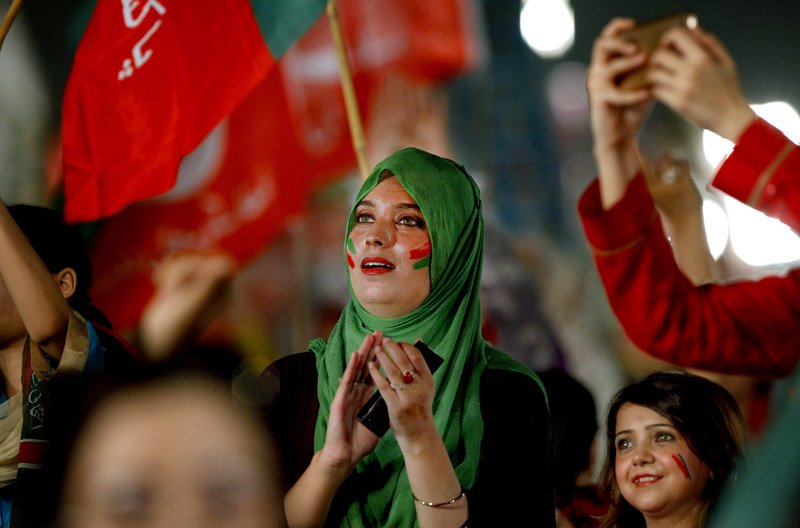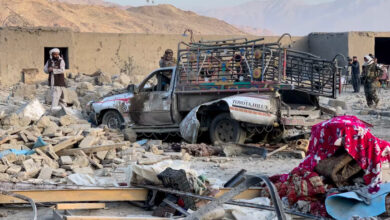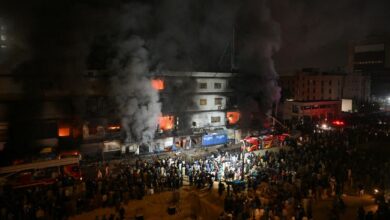
Pakistan’s parliament will meet Tuesday to elect a new prime minister after the disqualification of three-term prime minister Nawaz Sharif, as thousands gathered in the capital Islamabad Sunday to voice support for opposition leader Imran Khan.
Sharif’s Pakistan Muslim League party, which enjoys a comfortable majority in parliament, nominated Sharif’s longtime loyalist Shahid Khaqan Abbasi for the top slot on Saturday. Sharif proposed Abbasi as interim prime minister until his brother Shahbaz Sharif, who is the chief minister of Punjab province, can contend in a by-election for the seat left vacant by his brother’s disqualification.
The opposition is expected to name a candidate to challenge Abassi in a vote in parliament, but the six-time lawmaker is expected to win.
Sharif’s party holds 188 of 342 seats in parliament’s lower house and with additional votes from its allies is expected to obtain 214 votes. To win the top slot, Abbasi needs only 172 votes.
Pakistan’s Supreme Court disqualified Sharif from office on Friday for not being honest and concealing assets. The probe against him began after his children were named in the leaked so-called Panama papers for owning off-shore accounts and properties.
Sharif’s party has resolved to file a review petition in the Supreme Court to reverse the disqualification.
The probe was triggered by petitions filed by the conservative Jamaat-e-Islami party and cricket player-turned-politician Imran Khan.
Celebrating the Supreme Court verdict of ousting Sharif from premiership, Khan said Sunday in Islamabad that the court verdict has given the nation hope and “laid the foundation for a new Pakistan”.
Thousands of Khan’s jubilant supporters, chanting slogans and dancing to drum beats at a vast arena, raised placards reading ‘Prime Minister Imran Khan’.
Addressing the crowd, Khan said: “This nation is awakening now and determined to make Pakistan a great country free of corruption.”
Sharif has had a history of rocky relations with Pakistan’s powerful military and he has been removed from office three times.
He was first elected as prime minister in 1990 and was hardly half way through his five-year tenure when he was removed from office by the army’s hand-picked president in 1993. Sharif made a comeback in the 1997 elections but again his government was toppled by then-army chief Gen. Pervez Musharraf in a bloodless coup in October 1999. Sharif was tried for alleged hijacking, convicted and given a life prison sentence but later was exiled to Saudi Arabia. He returned to the country in 2007 after Benazir Bhutto struck a deal with Musharraf and returned from exile. She was assassinated in December 2007 after an election rally in Rawalpindi.
In seven decades, no civilian government has ever completed its term in Pakistan. The country has been ruled by military generals for more than half of its 70-year history and the military unwilling to see its influence challenged.




